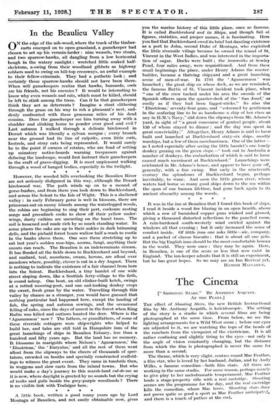A little book, written a good many years ago by
Lord Montagu of Beaulieu, and not easily obtainable now, gives
you the marine history of this little place, once so famous. It is called Bucklershard and its Ships, and though full of figures, statistics, and proper names, it is fascinating. Here you find that Bucklershard owed its brief but dazzling existence as a port to John, second Duke of Montagu, who exploited the little riverside village because he owned the island of St, Vincent in the West Indies, and was interested in the importa- tion of sugar. Docks were built ; the ironworks at Sowley Pond, four miles away, were requisitioned. And from these small beginnings the place, under Henry Adams the master- builder, became a thriving shipyard and a great launching scene of men-of-war. In 1781 the Agamemnon ' was launched ; the great ship on whose deck, as we are reminded, the famous Battle of St. Vincent incident took place, when " one of the crew tucked under his arm the swords of the Spanish officers upon the quarter-deck of the San Josef,' as coolly as if they had been faggot-sticks." So also the ' Illustrious,' seventy-four guns, and "esteemed by gentlemen in the seafaring line to be as handsome a ship of her class as any in H.M.'s Navy," slid down the slipways from Mr. Adams's yard, in sight of "a great concourse of genteel people, about 150 of whom stayed to dinner ; and the day was spent in great conviviality." Altogether, Henry Adams is said to have built and launched at Bucklershard sixty-six ships, mostly warships, but a few of them merchantmen. One of the latter— as I noted especially after seeing the little hamlet's one lonely donkey grazing on the green slope—" took out to Australia a number of donkeys, the embarkation of which is said to have caused much merriment at Bueklershard." Launchings were celebrated in Mr. Adams's house, and appear to have gone off, generally, with a fine swing. But early in the nineteenth century the splendours of Bucklershard began, perhaps inevitably, to wane. And soon the little green river, whose waters had borne so many good ships down to the sea within the span of one human lifetime, had gone back again to its ancient obscurity among the woods.
* *






































 Previous page
Previous page